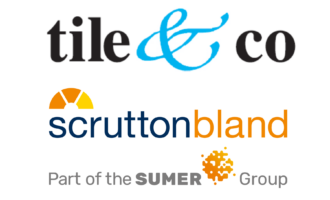Believe it or not we’re on our 8th Chancellor since Making Tax Digital (MTD) was first mentioned by George Osbourne almost 10 years ago.
And whilst MTD has been up and running for VAT registered businesses since 2019, the rollout for Income Tax Self-Assessment (MTD for ITSA) has taken much longer to implement.
But what is an incorporated business? And could a change in structure make your business more tax efficient? In this article, David Collins, Senior Tax Adviser at Scrutton Bland explores when might be the best time to incorporate your small business.
Who will be affected by Making Tax Digital?
Initially MTD was meant to commence in 2018, but after kicking it down the road a couple of times – including most recently the two-year delay from April 2024 – and with no other updates mentioned during the Autumn Budget, it’s still on course to take effect in April 2026.
At this point sole traders and landlords earning over £50,000 a year will need to keep digital records and file quarterly updates with HMRC.
From April 2027, sole trader businesses and landlords with qualifying income between £30,000 and £50,000 will also be required to join the digital revolution by registering and complying with MTD ITSA.
Sole traders and landlords with qualifying income over £20,000 will need to register and comply with MTD ITSA too although the roll out date for this has not yet been confirmed, but based on the current timelines we’d expect this to happen after 6 April 2027.
It is important to note that qualifying income is based on the combined income from these sources and not profits or income alone.
Partnerships will also be required to join at a later date, but this too is yet to be announced.
So, while this shift promises simplicity and transparency, it’s also a wake-up call to re-evaluate how your business is structured. And therefore, it needs to be at the forefront of future planning for all small businesses.
What needs to be completed under the new MTD rules?
Those affected will need to:
- Keep and submit digital records of their business income and expenditure.
- Send quarterly reports to HMRC for each type of revenue (i.e. a taxpayer with a sole trade and property business will need to send 8 quarterly reports, 4 for each business).
- Send a final declaration to HMRC.
The final declaration is a chance to make adjustments, add income, gains and claim reliefs, effectively replacing the existing self-assessment tax return.
Incorporated vs unincorporated businesses – what’s the difference?
Incorporated businesses are limited companies and set up as their own legal entity. Shareholders and directors are separate to ‘the business’ and therefore benefit from reduced liability. But they do face additional admin, stricter compliance, and more regular and detailed accounting processes that come with potentially higher accountancy fees.
Unincorporated businesses are commonly sole traders, landlords and some partnerships. They don’t have a separate legal personality, meaning the individual is responsible for any debts incurred.
Generally, their simplicity has been part of their charm for smaller businesses with annual tax returns, fewer admin headaches, and the freedom to focus on just running your business.
So, for many unincorporated businesses, the prospect of quarterly reporting with the introduction of MTD, could feel very overwhelming.
Making Tax Digital software
Navigating MTD doesn’t have to be daunting with the right tools. We recommend these HMRC-compatible software options:
Dext Solo: Perfect for sole traders and landlords, this app simplifies record-keeping, tracks expenses, and integrates seamlessly with MTD requirements.
QuickBooks Self-Employed: Ideal for tracking income, mileage, and expenses, with direct filing capabilities for quarterly updates.
Xero: A user-friendly tool for managing your accounts, invoicing, and VAT alongside MTD compliance.
Using these tools not only ensures compliance but can save you hours of admin time.
However, for many individuals MTD for income tax self-assessment will add complexity, particularly for those not already using digital record-keeping tools. And the need to commit to new software and submit more regular updates could tip the scales for some who are already balancing tight schedules and growing businesses.
So, is now the time to incorporate your business?
Incorporation could provide a smarter route in the digital age. Opening up some compelling advantages, especially under MTD:
- Limited liability: Your business becomes a separate legal entity, protecting your personal assets.
- Tax planning opportunities: Corporation tax rates are often lower than personal income tax rates, and paying yourself through dividends can be tax efficient.
- Perceived professionalism: Customers and clients often view incorporated businesses as more credible and trustworthy.
Planning Ahead
Of course, running a limited company isn’t all smooth sailing and there’s no “one-size-fits-all” answer.
Whether incorporation is right for you depends on your specific circumstances—your income level, plans for growth, and willingness to manage additional admin.
But with 2026 on the horizon, now is the time to take stock. And if you’re likely to outgrow the £50,000- or £30,000-income thresholds, why not get ahead of the curve and consider whether incorporation might ease your journey?
Things you can do now to prepare for Making Tax Digital:
- Assess your qualifying income levels to check if this will affect you.
- Hold a dedicated business bank account for each business – this will help make the whole MTD process easier.
- Get ahead now and start keeping your records digitally if you don’t already. The tools mentioned above are great for this.
- Going forward you’ll need to complete your tax reports quarterly so get into the routine of completing your bookkeeping on a regular basis or speak to a specialist who can get this in place for you.
- Start looking at cloud-based software options online or speak to an adviser about the options available.
- Talk to an adviser with MTD ITSA knowledge so that they can steer you through the process.
Our team can help you weigh up the pros and cons and ensure you’re prepared in plenty of time for MTD, whatever direction you choose. Get in touch with David or one of the Scrutton Bland tax advisory team today to start planning for a smoother tax future. Call us on 0330 058 6559 or email hello@scruttonbland.co.uk







